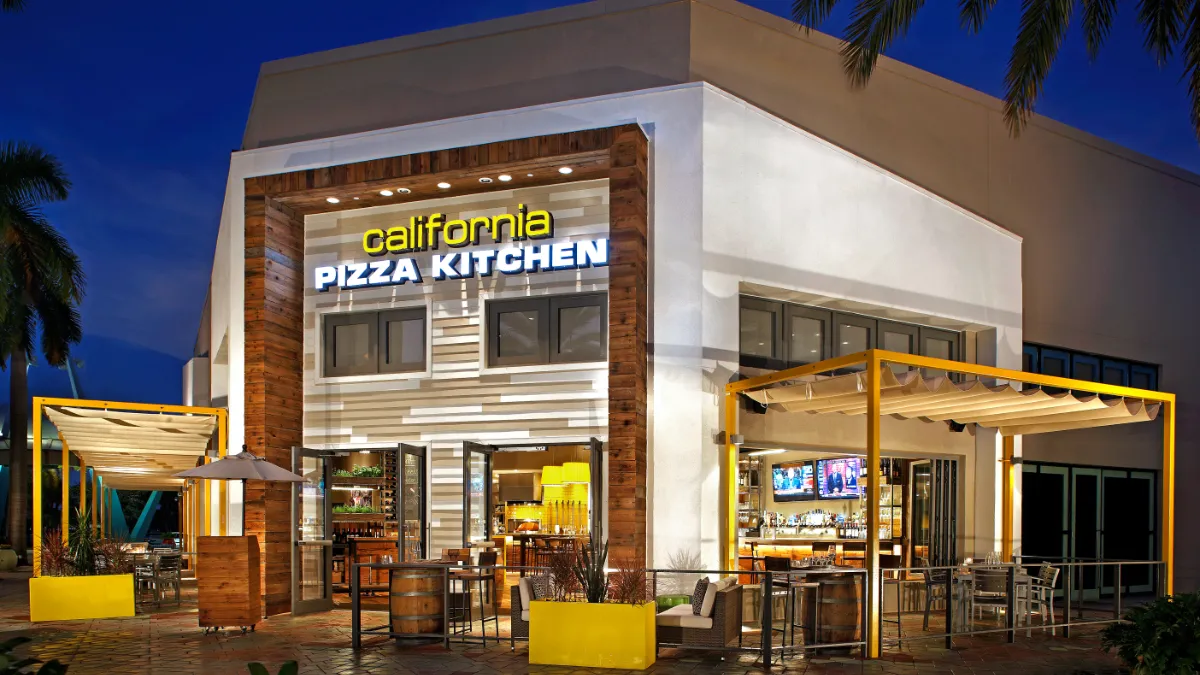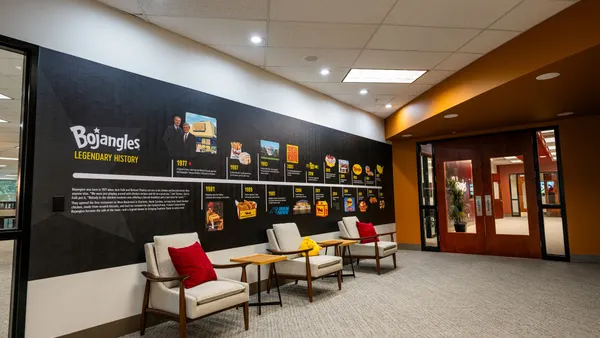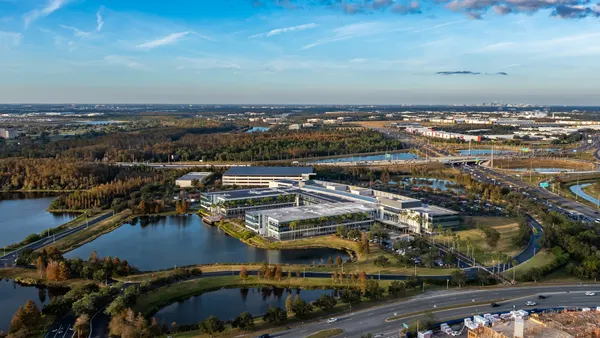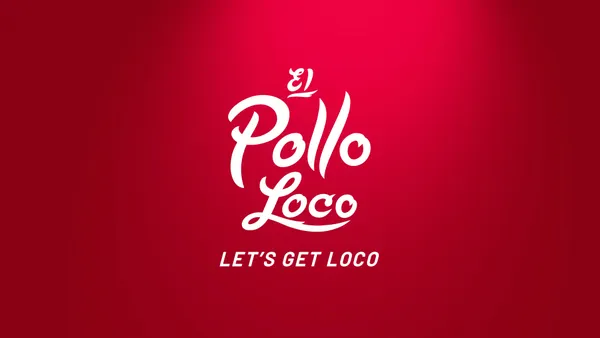Dive Brief:
- California Pizza Kitchen has successfully completed its financial restructuring process and emerged from Chapter 11 bankruptcy protection, according to a press release. The company completed a debt-for-equity transaction, reducing its debt load by more than $220 million and increasing liquidity.
- The company is now focused on expanding its global franchise footprint, innovating its menu and investing in marketing and digital, including continued acceleration of its off-premise channels.
- When CPK declared bankruptcy in July, it joined a long — and growing — list of restaurant chains that have also filed in recent months. That list includes Sizzler USA, Chuck E. Cheese, Ruby Tuesday, and Friendly’s — illustrating the significant impact the COVID-19 crisis has on casual chains. Casual dining's sales volumes are down roughly 60%, according to Upserve's State of the Restaurant Industry 2020 report.
Dive Insight:
The picture for the 35-year-old CPK looked especially grim when no bidders showed interest for its assets in October, turning the company over to bank lenders to lead its turnaround. Now, however, it's one of just a few that have a post-bankruptcy plan in place, joining TooJay's Deli, which was acquired in September, and Matchbox Food Group, which was acquired this month.
CPK was struggling prior to the pandemic because it was loaded with debt from its private equity owner Golden Gate Capital, which purchased the chain in 2011. Last year, Moody's flagged CPK as among the companies most likely to default.
However, the company has kept its innovation wheel churning through the COVID-19 turmoil, ramping up its relationships with Uber Eats, Grubhub, Postmates and DoorDash to pivot to off-premise channels as a way to recover from lost dine-in sales, which represent 78% of its business. The company also created CPK Market, selling menu items as groceries, introduced back-to-school lunch specials for families working and learning at home and launched a new plant-based chicken option — the BBQ "Don’t Call Me Chicken" pizza.
Those innovations are important, but not nearly as significant as its debt reduction. At one point, CPK was more than $400 million in debt. Now its debt is about $177 million. With a lighter load, CPK should be able to execute on its objectives of international growth, menu innovation and digital/marketing enhancements.
Still, much work remains for the company. CPK continues to have a heavy shopping mall presence, which could slow its recovery. While its focus on off-premise channels have helped a bit, sales were still down 40% in June, according to Restaurant Business. Cash flow was negative $18.9 million from March to June, when the company didn't have rent or loan interest payments.













